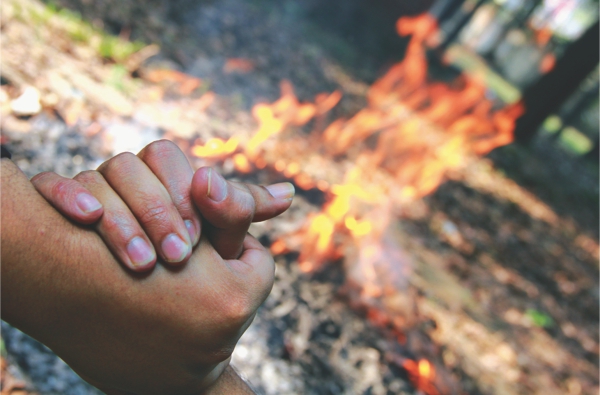Going Spiral

Lot to Think About
Saad Adnan Khan
Photos: Kazi Tahsin Agaz Apurbo
When it came to the history of Liberation War of Bangladesh, I remember that we studied about it in Bengali class sporadically. We read about the male birseshtos, we memorised few important dates, the total number of people who were murdered, the difference between the Victory Day and Independence Day (had to make sure we got that right). I don't remember studying the history of Liberation War in history class. In history class, we read about the British history, we read about Elizabeth, we performed Shakespearean plays in English Literature classes in the sixth grade (did we work on our British accent too?). Honestly, I grew up with a not very 'non-patriotic' sense regarding the Liberation War. However, nowadays I hear there are separate classes called 'Bangladesh Studies,' I'm curious to know how history 'gets taught' in these classes.
As I sit in Sweden and read the news of BNP and Jamaat activists destroying public properties and murdering people, Bangladesh Chhatra League activists brutally killing an innocent life to show their fury and hatred for BNP, the police force doing very little to control the havoc, I don't know how to react. As election draws near more and more, it seems the civil war (not a new one of course) between Awami League and BNP gains momentum and solidify. I guess both the Awami League and BNP activists are enjoying their democratic rights after all, as Prime Minister Sheikh Hasina pointed out in her interview at BBC Hardtalk. The political clashes are apt examples of how we are indeed unified, according to Prime Minister. My friends post on facebook about how no one is safe, everyone's life is cheap, everyone is prone to be murdered anytime, anywhere. There's something quite unnerving and surreal about the chronology of the events—the victory of the Bangladesh Cricket Team winning the series, the warmth and love people poured out for the Tigers (that even thawed the -14 degree Celsius for me here), followed by the BNP ‘oborodh’ and the murdering of Biswajit Das by Bangladesh Chhatra League activists.

In this month of victory, we have a lot to think about- about victory, success and achievement.
I once interviewed three students of BUET regarding the non-violent protest by teachers and students, where they demanded the removal of the VC and Pro-VC for their corrupt and unfair political activities. The students wanted a healthy environment where they can study and learn. The interview with these three students went for almost two hours. As I had to listen to the interview once again in order to quote, I was devastated since I of course couldn't transcribe everything they said due to word limit and other technicalities. But they had so much to say, and they said so much. One of them frustratingly pointed out that he no longer wants to stay in the country if such abuse of political power continues to happen. Can we judge him? Can we judge others who think alike? I don't think so.
I end up being overly cynical as I talk about my country to my international friends here. As Martina, David and I, walk out through the snow ridden forest (where we decided to venture in at night), Martina, being Italian, expresses her frustration about Berlusconi, she informs me that he will run for the election again. She is infuriated. I empathise with her, because I also come from a country where the reign of two political parties seems never ending. When nowadays I start talking about my country, I end up talking about bridges collapsing, bodies of factory labourers getting burnt, young people getting killed, journalists and teachers being beaten. I tell my friends here about the youths and their energy, and I tell them about the youth organisations that function to educate, feed, clothe the poor and the underprivileged. I have talked to these young people; I have seen them doing all that. The youths are also making their best effort to hold on, to deal with the flustering bureaucracy of the administration in universities, campus violence and what not. I'm beginning to worry how long they can hold on.
How can we measure our success and victory? Can we rely on GDP or the shopping capability of people on Eid to understand our growth? Can we devise in GNH- Gross National Happiness, like Bhutan, to measure quality of life and social progress based on pillars such as conservation of natural environment and establishment of good governance? Bangladesh ranks high on the Corruption Perceptions Index, and also the Happy Planet Index (!). What's the connection there? Victory of course is an ongoing process, we gain some, we lose some. However, is the loss overweighing the gain? In this month of victory, we have a lot to think about- about victory, success and achievement.
(The writer is a Reporter, Star Campus, currently doing Master's in Gender Studies: Intersectionality and Change at Linköping University, Sweden.)
|
